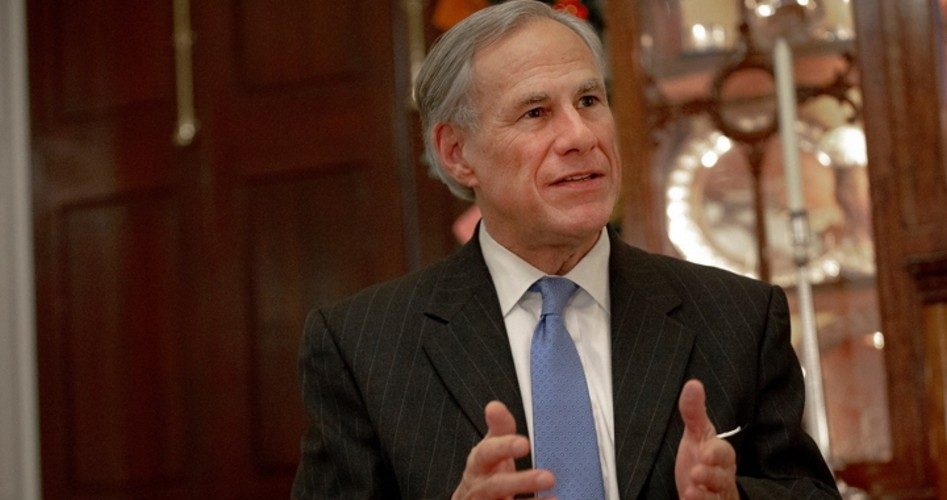
Texas Governor Greg Abbott signed into law Monday legislation that prohibits governments in the Lone Star State from taking “adverse action” against individuals or businesses because of their contributions to religious organizations.
The bill was passed in response to the San Antonio city council’s denial of a San Antonio International Airport concession to Chick-fil-A because the fast-food chain’s charitable arm donates to Christian organizations, including the Salvation Army and the Fellowship of Christian Athletes, that uphold biblical teachings on marriage and sexuality.
“San Antonio is a city full of compassion, and we do not have room in our public facilities for a business with a legacy of anti-LGBTQ behavior,” Councilman Roberto Treviño, who led the fight to exclude Chick-fil-A from the airport, said in a statement at the time.
As for the legislation Abbott signed, which became known as the “Save Chick-fil-A” bill, the Dallas Morning News reported:
Democrats had previously tried to take down the lightning-rod legislation. Earlier in May, the House torpedoed the bill on a “point of order,” a legislative mechanism, by identifying a procedural mistake that prevented it from being considered on the floor. But Senate Republicans moved quickly to fast-track a companion bill in its place.
The bill easily passed the GOP-controlled legislature on May 23. A few days earlier, Abbott, a Republican, had signaled his intent to sign the bill by tweeting a photo of a Chick-fil-A cup sitting on the keyboard of a laptop computer whose screen displayed an article about the bill. “So. What are the odds I’ll sign the Chick-fil-A bill?” Abbott remarked. “I’ll let you know after dinner.”
“Religious groups, and the Republican lawmakers that supported the bill, said it underlined constitutionally-protected rights,” wrote the News. “But LGBT advocates said the effort was a thinly-veiled attempt by religious conservative to attack lesbian, gay, bisexual and transgender Texans.”
“Religious freedom, at different times in our nation’s history, has been twisted to justify discrimination, to justify slavery,” said state Representative Chris Turner, leader of the House Democratic Caucus. “Religious liberty is being used to justify discrimination.”
But Chick-fil-A is not discriminating except in the sense of deciding to which causes it will contribute. No one has charged the restaurant with turning away prospective employees or customers because they happen to be LGBT or in a same-sex “marriage.” A law protecting a business’s right to donate to charitable organizations in line with its owners’ beliefs does not “justify discrimination.”
Then there’s the typical projection of the Left, which genuinely hates those with whom it disagrees.
State Representative Mary Gonzalez, an LGBT Democrat, said, “The scariest part of this bill … is the individuals who will take this bill and use your vote for this bill to perpetuate hate.”
“This message poisons the state,” said state Representative Julie Johnson, also a Democrat. “It sends a message that Texas is not open and welcoming to all.”
Chick-fil-A, of course, already got that message from the San Antonio city council.
In contrast to the hysterical progressives — “members of the House’s newly formed LGBTQ Caucus, surrounded by House Democrats in locked arms, offered emotional testimony” against the legislation, noted the News — the bill’s supporters understood all too well what was at stake.
“Should any city council be able to refuse me as a vendor in their city simply because I make donations to my church, which holds a biblical view of marriage?” asked state Representative Matt Schaefer, a Republican.
Texas Values Action, a Christian advocacy organization based in Austin, cheered the bill’s transition into law.
“No Texan should fear state-sponsored attacks against them because of what they believe,” the group said in a statement Tuesday. “The Save Chick-fil-A bill ensures, just like the First Amendment intended, that no one is discriminated against for associating or donating to a religious organization.”
Photo: AP Images


